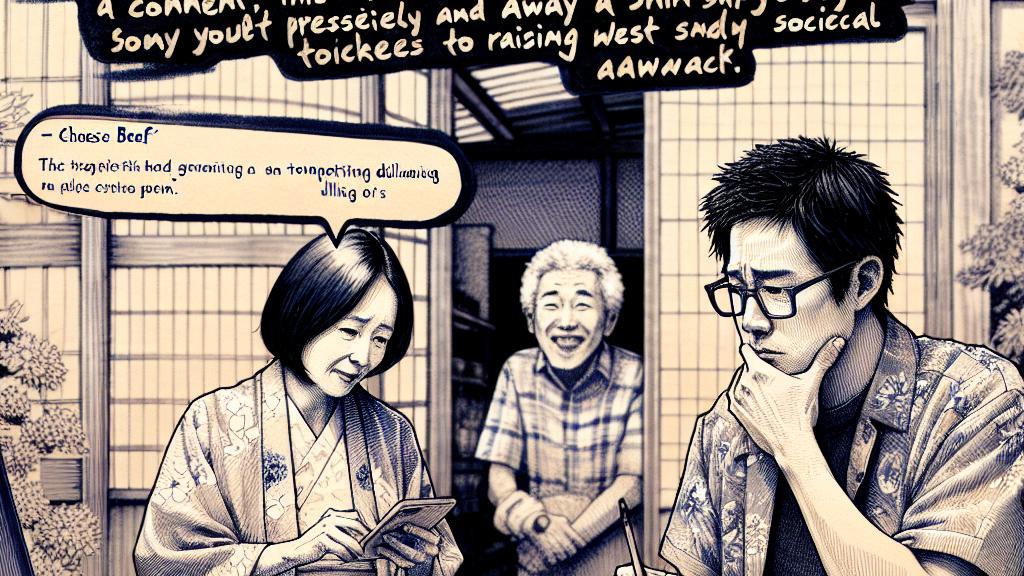When Mom Labels Her Son a 'Cheese Beef': A Family Drama Unfolds!
Overview
- A mother's concern leads her to label her son as 'Cheese Beef', igniting a family discussion.
- The term highlights troubling societal stereotypes affecting young boys' identities.
- Open communication and empathy are essential for addressing parenting challenges in today's digital age.

The Spark of Conflict
In Japan, during the summer holidays, a father reflects on a troubling exchange with his wife about their middle school son. As the boy stays with grandparents, the wife suddenly expresses her worry: 'Isn't our son a Cheese Beef?' The term, rooted in internet meme culture, describes boys perceived as socially awkward and less desirable. This jarring label makes the father question the implications of reducing their son's identity to mere stereotypes. The conversation spirals into a crucial dialogue that signals deeper family dynamics—touching on the pressures parents face in raising children within a world that often imposes rigid expectations.
Understanding 'Cheese Beef'
'Cheese Beef' encapsulates more than just an internet trend; it's a reflection of societal anxieties surrounding masculinity in contemporary Japan. Derived from a viral image and quickly becoming a meme, the phrase characterizes boys who lack assertiveness, exhibit nerdy interests, or struggle socially. With examples highlighting physical and personality traits associated with the term, the narrative challenges the notion of labeling children based on superficial traits. The mother's use of this term, instead of addressing her son's unique personality and experiences, reveals her concern over societal perceptions and her hopes for her son’s social acceptance, raising questions about how these expectations shape a child's self-image.
The Importance of Communication and Understanding
The growing tension between the husband and wife underscores a critical need for effective communication. The father counters the mother’s labeling behavior, advocating for an approach grounded in empathy and support. He encourages her to reconsider the impact of such terms on their son’s psyche and future interaction skills. Furthermore, this parenting dilemma showcases the pervasive influence of social media and societal pressures on modern upbringing. The couple’s discussions highlight the necessity for open dialogue in fostering a nurturing environment, where their son can express feelings freely and avoid the emotional scars that harsh labels may inflict. Ultimately, this family drama serves as a poignant reminder of the power of language and love in shaping youth identity amidst a world eager to define them by flawed stereotypes.

Loading...